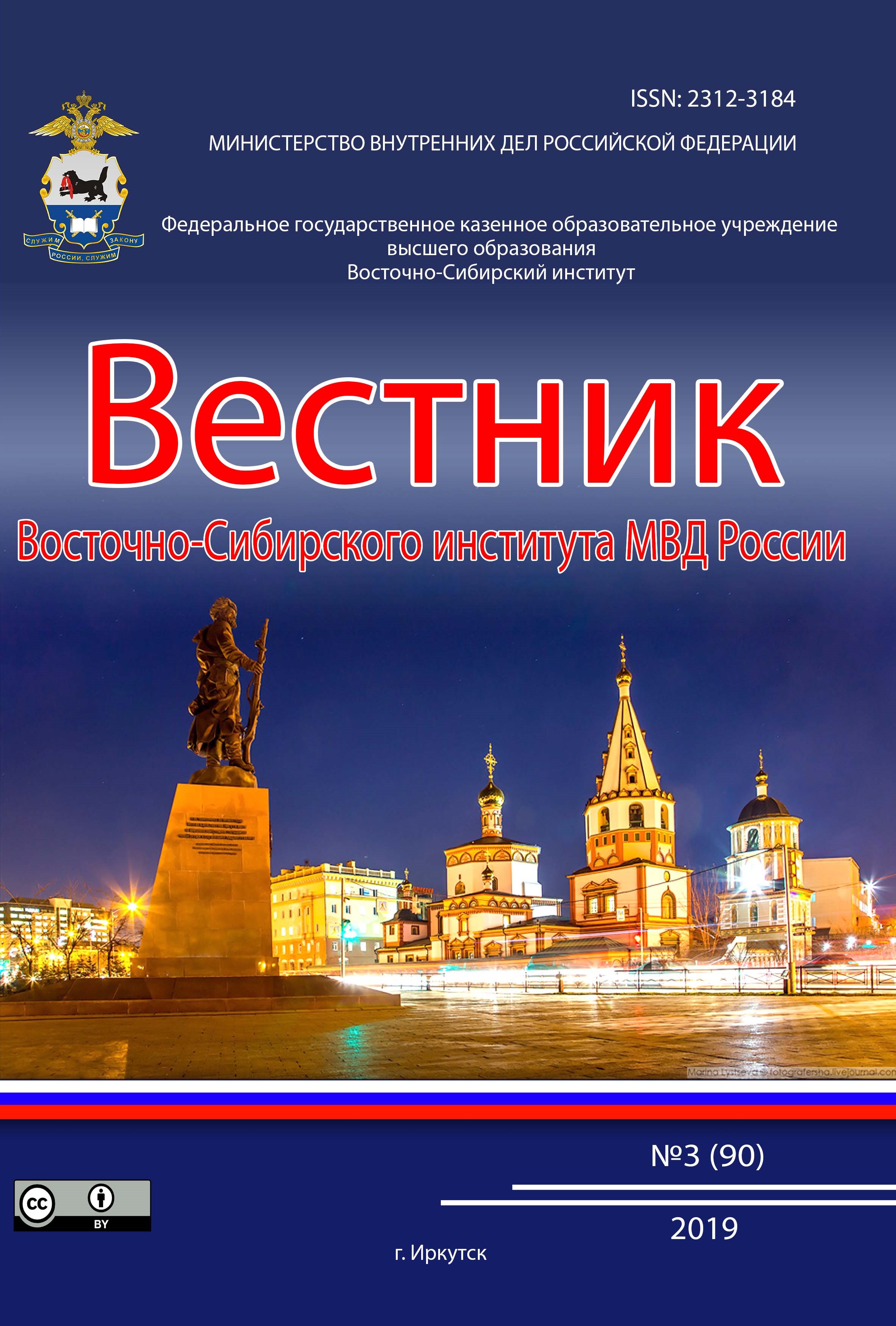Introduction. Article 75 of the Criminal Procedure Code of the Russian Federation (hereinafter referred to as the Code of Criminal Procedure of the Russian Federation) regulates the grounds for declaring evidence inadmissible. The analysis of this article actually gives grounds for individual violations of the current legislation to form the basis for excluding evidence from the assessment of the total body of evidence. Based on the content of Art. 75 of the Code of Criminal Procedure of the Russian Federation, the legislator primarily focuses on the failure to provide the right to defense to the suspect, the accused, on testimony that is based on assumption, rumor, conjecture, on failure to indicate the source of his knowledge, on the collection of information by operational officers contrary to the norms of the current Code of Criminal Procedure of the Russian Federation and the legislator, in an expanded format, makes it possible to recognize as inadmissible evidence those collected in violation of the law. In this connection, we have made an attempt to analyze the criterion of inadmissibility in the light of the internal conviction of the court. Materials and Methods. The research materials included monographic and scientific periodicals in the form of scientific articles by scientists, norms of current legislation, and examples of judicial practice. During the study, a dialectical method was used, an analysis of scientific, regulatory and legal sources, positions of the Supreme Court of the Russian Federation (hereinafter referred to as the Supreme Court of the Russian Federation), court decisions of the courts of the first, appeal, and cassation instances was carried out, methods of generalizing the positions of courts, as well as a comparative legal method were used. The Results of the Study made it possible to identify the grounds for declaring evidence inadmissible based on an analysis of judicial practice. We also presented the positions of the courts with the justification for recognizing as inadmissible as evidence a polygraph examination to determine the reliability of the testimony, and therefore, the inadmissibility of the conclusion of a psychophysiological examination. However, it was considered that the courts, without a proper and competent explanation, recognize such studies as not subject to evaluation in the total body of evidence. In this connection, there is a presumption of inadmissibility of evidence, which eliminates confidence in the scientific nature of such examinations. Findings and Conclusions. As a result of scientific research, they proposed a new classification for recognizing evidence as inadmissible, which is formed on the principle of distrust in the scientific validity of special knowledge. In addition, we emphasize the need to legislatively specify the criteria for admissibility and inadmissibility of information that could potentially be assessed as evidence in a criminal case. We substantiate the impossibility of replacing legislative norms with the guidelines of the Supreme Court of the Russian Federation.
evidence, process of proof, evaluation of evidence, recognition of evidence as inadmissible, classification of grounds for recognition as inadmissible
1. Vasyaev, A. A. Vasyaev, A. A. Priznanie dokazatel'stv nedopustimymi v khode sudebnogo sledstviya v sude pervoi instantsii v rossiiskom ugolovnom protsesse [Recognition of evidence as inadmissible during judicial investigation in the court of first instance in the Russian criminal process]. Moscow, 2010, 176 p.
2. Fairushina, R. D. Sposoby priznaniya dokazatel'stv nedopustimymi [Ways of recognizing evidence as inadmissible]. URL:https://cyberleninka.ru/article/n/sposoby-priznaniya-dokazatelstv-nedopustimymi (date of request: 02.04.2025).
3. Surtsev, A. V. Institut nedopustimykh dokazatel'stv v ugolovnom protsesse [Institute of inadmissible evidence in criminal proceedings]. URL:https://cyberleninka.ru/article/n/institut-nedopustimyh-dokazatelstv-v-ugolovnom-protsess (date of request: 02.04.2025).
4. Zhubrina, R. V. Deyatel'nost' prokurora po zashchite prav nesovershennoletnikh [Activities of the prosecutor for the protection of the rights of minors]. Moscow, 2024, 312 p.
5. Tarasov, I. S. Nedopustimye dokazatel'stva v ugolovnom protsesse: problemy tolkovaniya ch. 1 st. 75 UPK RF [Inadmissible evidence in criminal proceedings: problems of interpretation of Part 1 of Article 75 of the Criminal Procedure Code of the Russian Federation]. URL:https://cyberleninka.ru/article/n/nedopustimye-dokazatelstva-v-ugolovnom-protsesse-problemy-tolkovaniya-ch-1-st-75-upk-rf (date of request 26.03.2025).
6. Gasparyan, N. Pochemu dopustimy nedopustimye dokazatel'stva? [Why is unacceptable evidence acceptable?]. URL:https://www.advgazeta.ru/mneniya/pochemu-dopustimy-nedopustimye-dokazatelstva/ (date of request: 03.05.2025).
7. Lyamin, A. Predstavlyaem Vam podborku sudebnykh aktov kassatsionnykh sudov obshchei yurisdiktsii v chasti priznaniya dokazatel'stv nedopustimymi [We present to you a selection of judicial acts of the cassation courts of general jurisdiction regarding the recognition of evidence as inadmissible]. URL:https://apur.ru/index.php?option=com_content&view=article&id=1690 (date of request 18.042025).
8. Andreeva, O. I. Problemy psikhofiziologicheskogo issledovaniya: kriminalisticheskii aspekt [Problems of psychophysiological research: criminalistic aspect]. URL:https://cyberleninka.ru/article/n/problemy-psihofiziologicheskogo-issledovaniya-kriminalisticheskiy-aspekt (date of request 03.05.2025).
9. Aminev, F. G., Aminev, A. F. O nauchno-metodicheskom obespechenii psikhofiziologicheskoi ekspertizy s primeneniem poligrafa [On scientific and methodological support of psychophysiological examination using a polygraph]. URL:https://cyberleninka.ru/article/n/o-nauchno-metodicheskom-obespechenii-psihofiziologicheskoy-ekspertizy-s-primeneniem-poligra date of request: 02.05.2025).











